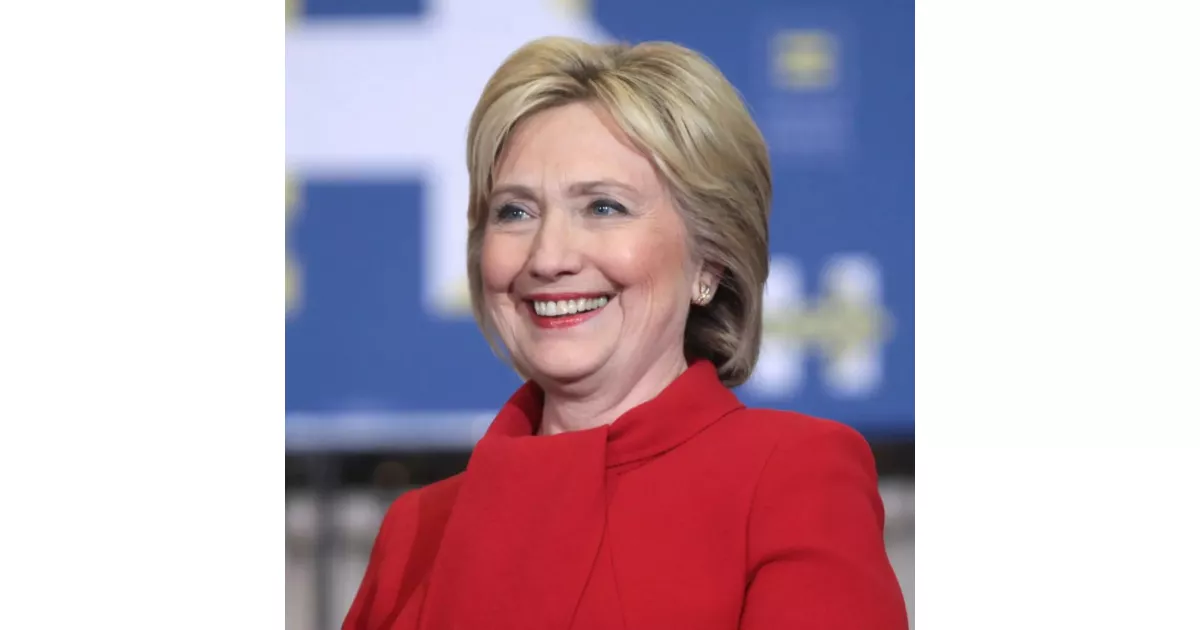Controversies are a part of history. Explore the biggest scandals linked to Hillary Clinton.
Hillary Diane Rodham Clinton is an American politician, lawyer, and diplomat with a long and impactful career. She served as the 67th United States Secretary of State, a U.S. Senator representing New York, and First Lady of the United States. As a member of the Democratic Party, she secured the party's nomination in the 2016 presidential election, marking her as the first woman to achieve this milestone for a major U.S. party and the only woman to win the presidential popular vote, although she lost the electoral college to Donald Trump. Clinton is also the only First Lady to have sought elected office.
1978: Cattle futures trading controversy
In 1978, Hillary Clinton was involved in the Hillary Clinton cattle futures controversy, which related to cattle futures trading.
1979: Cattle futures trading controversy
In 1979, Hillary Clinton was involved in the Hillary Clinton cattle futures controversy, which related to cattle futures trading.
August 1992: The Lady Macbeth of Little Rock
Beginning with Daniel Wattenberg's August 1992 The American Spectator article "The Lady Macbeth of Little Rock", Hillary's own past ideological and ethical record came under attack from conservatives.
January 26, 1996: Testified before a federal grand jury
On January 26, 1996, Hillary Clinton became the first spouse of a U.S. president to be subpoenaed to testify before a federal grand jury as part of the Whitewater controversy investigation.
June 1996: Discovery of improper White House access to FBI background reports
In June 1996, the "Travelgate" investigation led to the discovery of improper White House access to hundreds of FBI background reports on former Republican White House employees, an affair that some called "Filegate".
1996: Supported the Welfare Reform Act of 1996
In 1996, Hillary Clinton decided to support the Welfare Reform Act of 1996, as the best political compromise available.
1998: Clinton-Lewinsky Scandal
In 1998, Hillary Clinton's marital relationship came under public scrutiny during the Clinton–Lewinsky scandal, which led her to publicly reaffirm her commitment to the marriage.
2000: Independent Counsel report on Filegate
In 2000, the final Independent Counsel report found no substantial or credible evidence that Hillary Clinton had any role or showed any misconduct in the Filegate matter.
2000: Final Whitewater report issued
In 2000, the final report on the Whitewater controversy, after several Independent Counsels investigated, stated there was insufficient evidence that either Bill or Hillary Clinton had engaged in criminal wrongdoing.
2001: Controversy over White House gifts
In early 2001, a controversy arose over gifts sent to the White House during Bill Clinton's last year in office, questioning whether the furnishings were White House property or the Clintons' personal property, and their subsequent shipment to the Clintons' private residence.
October 2002: Voted for Iraq War Resolution
In October 2002, Hillary Clinton voted in favor of the Iraq War Resolution, which authorized President George W. Bush to use military force against Iraq.
2011: Advocated Military Intervention in Libya
In 2011, Hillary Clinton responded to the Arab Spring by advocating the military intervention in Libya.
September 11, 2012: Attack on U.S. diplomatic mission in Benghazi
On September 11, 2012, the U.S. diplomatic mission in Benghazi, Libya, was attacked, resulting in the deaths of U.S. Ambassador J. Christopher Stevens and three other Americans.
2012: Benghazi Attack Criticism
In 2012, Hillary Clinton was harshly criticized by Republicans for the failure to prevent or adequately respond to the Benghazi attack.
2012: Attack on U.S. diplomatic mission in Benghazi
On September 11, 2012, the U.S. diplomatic mission in Benghazi, Libya, was attacked, resulting in the deaths of U.S. Ambassador J. Christopher Stevens and three other Americans.
January 23, 2013: Testimony to congressional committees regarding Benghazi attack
On January 23, 2013, Hillary Clinton gave testimony to two congressional foreign affairs committees regarding the Benghazi attack, defending her actions and accepting formal responsibility. She famously questioned "What difference at this point does it make?" regarding the cause of the attack.
May 2014: Creation of House Select Committee on Benghazi
In May 2014, the Republican-led House Select Committee on Benghazi was created to conduct a two-year investigation related to the 2012 attack.
November 2014: House Intelligence Committee Report on Benghazi
In November 2014, the House Intelligence Committee issued a report that concluded there had been no wrongdoing in the administration's response to the Benghazi attack.
July 15, 2015: Inspector General Review of Emails
On July 15, 2015, the inspector generals of the State Department and the intelligence community found that Hillary Clinton's emails contained information that was classified when sent and should not have been transmitted via an unclassified system, sparking controversy.
October 22, 2015: Testimony before the House Select Committee on Benghazi
On October 22, 2015, Hillary Clinton testified at an all-day and nighttime session before the House Select Committee on Benghazi.
February 4, 2016: Statement on classified material
During a Democratic debate with Bernie Sanders on February 4, 2016, Hillary Clinton said, "I never sent or received any classified material—they are retroactively classifying it."
February 2016: Retroactive Classification of Emails
In February 2016, The New York Times reported that nearly 2,100 emails stored on Hillary Clinton's server were retroactively marked classified by the State Department, further fueling the email controversy.
May 2016: State Department Inspector General Criticism
In May 2016, the inspector general of the State Department criticized Hillary Clinton's use of a private email server while secretary of state, stating that she had not requested permission for this and would not have received it if she had asked.
June 2016: Release of competing final reports by House Select Committee on Benghazi
In June 2016, the House Select Committee on Benghazi issued competing final reports; the Republican report offered no evidence of culpability by Hillary Clinton related to the 2012 Benghazi attack.
July 2, 2016: Statement on Classified Information
On July 2, 2016, Hillary Clinton stated: "Let me repeat what I have repeated for many months now, I never received nor sent any material that was marked classified."
July 5, 2016: FBI Concludes Email Investigation
On July 5, 2016, the FBI concluded its investigation of Hillary Clinton's use of a personal email server.
July 6, 2016: Email probe closed without charges
On July 6, 2016, U.S. Attorney General Loretta Lynch confirmed that the probe into Hillary Clinton's use of private email servers would be closed without criminal charges.
October 28, 2016: FBI Reopens Clinton Email Investigation
On October 28, 2016, FBI Director James Comey notified Congress that the FBI had begun looking into newly discovered emails related to Hillary Clinton.
2016: Private Email Server Controversy
During her time as secretary of state, Hillary Clinton conducted official business exclusively through her private email server. In 2016 some experts, officials, members of Congress and political opponents contended that her use of private messaging system software and a private server violated State Department protocols and procedures, and federal laws and regulations governing recordkeeping requirements.
2016: Second Presidential Run
In 2016, Hillary Clinton's use of a private email server as secretary was the subject of intense scrutiny during her second presidential run. She won the Democratic nomination, but lost the general election to Donald Trump.
2016: Email Scandal
In August 2024, Hillary Clinton addressed the 2024 Democratic National Convention, referencing the 34 felony convictions of Republican presidential nominee Donald Trump, which prompted chants of "Lock him up!" from the crowd in reference to Trump's own chants of "Lock her up!" in reference to Clinton's email scandal during his 2016 campaign.
September 2019: State Department Internal Review
In September 2019, the State Department concluded its internal review regarding Hillary Clinton's use of a personal email server, finding it increased the risk of compromised information but without evidence of deliberate mishandling of classified information.
August 2024: Address to the 2024 Democratic National Convention
In August 2024, Hillary Clinton addressed the 2024 Democratic National Convention, referencing the 34 felony convictions of Republican presidential nominee Donald Trump, which prompted chants of "Lock him up!" from the crowd.
Mentioned in this timeline

Donald John Trump is an American politician media personality and...

Bernie Sanders is a prominent American politician currently serving as...

Vladimir Vladimirovich Putin is a Russian politician and former intelligence...

Bill Clinton the nd U S President - served as...

Barack Obama the th U S President - was the...

Martin Luther King Jr was a pivotal leader in the...
Trending
Leverkusen is a city situated in North Rhine-Westphalia Germany located on the eastern bank of the Rhine River It shares...

11 months ago Amber Glenn shines at Figure Skating World Championships, redefining power on ice.
3 months ago Viktor Gyökeres scores for Arsenal, stunning fans with an unexpected goal and celebration.
9 months ago Hilary Knight Announces 2026 Milan Olympics Will Be Her Last Olympic Games

8 months ago Katie Boulter competes against Keys in the French Open 2025 at Roland Garros.

9 months ago Scott Galloway Proposes Social Security Fix: Impact and Billionaire Benefits Analyzed
Popular

Kid Rock born Robert James Ritchie is an American musician...

Melania Trump a Slovenian-American former model has served as First...

XXXTentacion born Jahseh Dwayne Ricardo Onfroy was a controversial yet...
The Winter Olympic Games a major international multi-sport event held...

Thomas Douglas Homan is an American law enforcement officer who...

Instagram is a photo and video-sharing social networking service owned...
